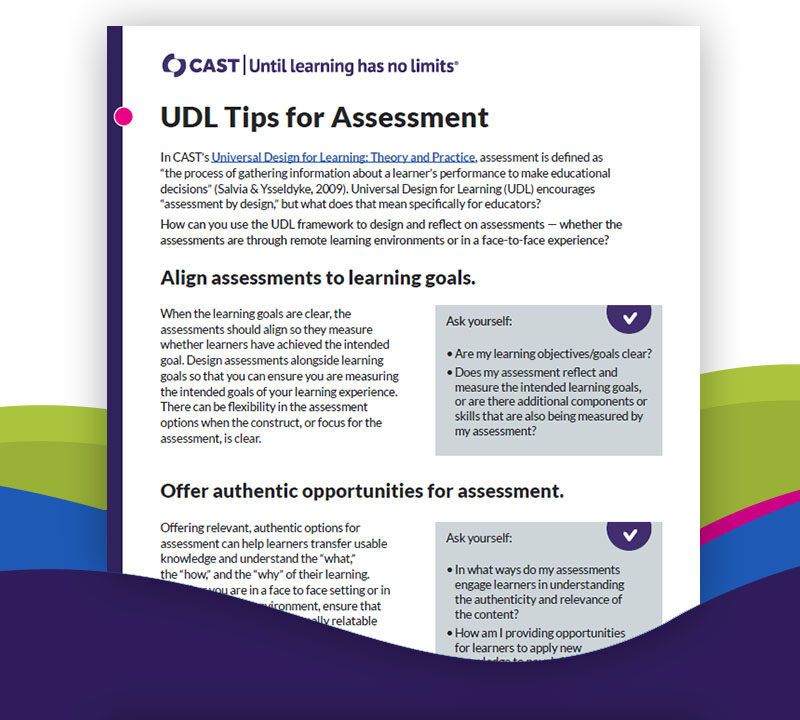In CAST’s Universal Design for Learning: Theory and Practice, assessment is defined as “the process of gathering information about a learner’s performance to make educational decisions” (Salvia & Ysseldyke, 2009). Universal Design for Learning (UDL) encourages “assessment by design,” but what does that mean specifically for educators?
How can you use the UDL framework to design and reflect on assessments—whether the assessments are through remote learning environments or in a face-to-face experience?
UDL Tips for Assessment:
- Align assessments to learning goals.
- Offer authentic opportunities for assessment.
- Assess engagement as well as content knowledge.
- Include frequent formative assessments.
- Reduce unnecessary barriers to access.
- Support learner variability through flexible assessments.
- Use and share rubrics to clarify expectations.
- Involve learners in assessing their learning progress.
- Reflect on summative assessments for future design.
- Build communities of practice that support reflective design.
Cite As
CAST (2020). UDL Tips for Assessment. Wakefield, MA: Author. Retrieved from https://www.cast.org/resources/tips-articles/udl-tips-assessments/.

